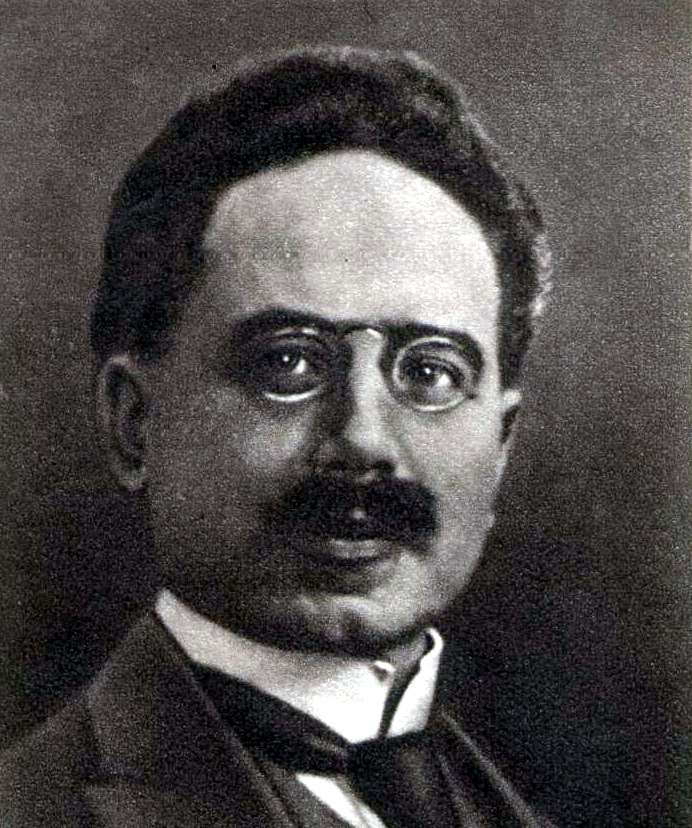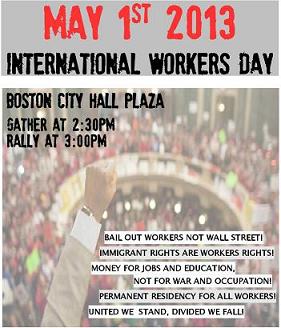Bradley Manning is off limits at SF Gay Pride parade, but corporate sleaze is embraced
A seemingly trivial controversy reveals quite a bit about pervasive political values

(FILES)PFC Bradley Manning is escorted by military police as he departs the courtroom at Fort Meade, Maryland in this April 25, 2012 file photo. Photograph: Jim Watson/AFP/Getty Images
News reports yesterday indicated that Bradley Manning, widely known to be gay, had been selected to be one of the Grand Marshals of the annual San Francisco gay pride parade, named by the LGBT Pride Celebration Committee. When the predictable backlash instantly ensued, the president of the Board of SF Pride, Lisa L Williams, quickly capitulated, issuing a cowardly, imperious statement that has to be read to be believed.
Williams proclaimed that "Manning will not be a grand marshal in this year's San Francisco Pride celebration" and termed his selection "a mistake". She blamed it all on a "staff person" who prematurely made the announcement based on a preliminary vote, and she assures us all that the culprit "has been disciplined": disciplined. She then accuses Manning of "actions which placed in harms way [sic] the lives of our men and women in uniform": a substance-free falsehood originally spread by top US military officials which has since been decisively and extensively debunked, even by some government officials (indeed, it's the US government itself, not Manning, that is guilty of "actions which placed in harms way the lives of our men and women in uniform"). And then, in my favorite part of her statement, Williams decreed to all organization members that "even the hint of support" for Manning's actions - even the hint - "will not be tolerated by the leadership of San Francisco Pride". Will not be tolerated.
I originally had no intention of writing about this episode, but the more I discovered about it, the more revealing it became. So let's just consider a few of the points raised by all of this.
First, while even a hint of support for Manning will not be tolerated, there is a long roster of large corporations serving as the event's sponsors who are welcomed with open arms. The list is here. It includes AT&T and Verizon, the telecom giants that enabled the illegal warrantless eavesdropping on US citizens by the Bush administration and its NSA, only to get retroactively immunized from Congress and thus shielded from all criminal and civil liability (including a lawsuit brought in San Francisco against those corporations by their customers who were illegally spied on). Last month, AT&T was fined by OSHA for failing to protect one of its employees who was attacked, was found by the FCC last year to have overcharged customers by secretly switching them to plans they didn't want, and is now being sued by the US government for "allegedly bill[ing] the government improperly for services designed for the deaf and hard-of-hearing who place calls by typing messages over the web."
 The list of SF Pride sponsors also includes Bank of America, now being sued for $1 billion by the US government for allegedly engaging in a systematic scheme of mortgage fraud which the US Attorney called "spectacularly brazen in scope". Just last month, the same SF Pride sponsor received a record fine for ignoring a court order and instead trying to collect mortgage payments from bankrupt homeowners to which it was not entitled. Earlier this month, SF-Pride-sponsoring Bank of America paid $2.4 billion to settle shareholder allegations that Bank executives "failed to disclose information about losses at Merrill Lynch and bonuses paid to Merrill Lynch employees before the brokerage was acquired by Bank of America in January 2009 for $18.5 billion."
The list of SF Pride sponsors also includes Bank of America, now being sued for $1 billion by the US government for allegedly engaging in a systematic scheme of mortgage fraud which the US Attorney called "spectacularly brazen in scope". Just last month, the same SF Pride sponsor received a record fine for ignoring a court order and instead trying to collect mortgage payments from bankrupt homeowners to which it was not entitled. Earlier this month, SF-Pride-sponsoring Bank of America paid $2.4 billion to settle shareholder allegations that Bank executives "failed to disclose information about losses at Merrill Lynch and bonuses paid to Merrill Lynch employees before the brokerage was acquired by Bank of America in January 2009 for $18.5 billion."
Another beloved SF Pride sponsor, Wells Fargo, is also being "sued by the US for hundreds of millions of dollars in damages over claims the bank made reckless mortgage loans that caused losses for a federal insurance program when they defaulted". Last year, Wells Fargo was fined $3.1 million by a federal judge for engaging in conduct that court called "highly reprehensible" relating to its persecution of a struggling homeowner. In 2011, the bank was fined by the US government "for allegedly pushing borrowers with good credit into expensive mortgages and falsifying loan applications."
Also in Good Standing with the SF Pride board: Clear Channel, the media outlet owned by Bain Capital that broadcasts the radio programs of Rush Limbaugh, Sean Hannity and Glenn Beck; a pension fund is suing this SF Pride sponsor for making cheap, below-market loans to its struggling parent company. The health care giant Kaiser Permanente, another proud SF Pride sponsor, is currently under investigation by California officials for alleged massive privacy violations in the form of recklessly disclosing 300,000 patient records, and was previously targeted with criminal and civil charges, which it settled, for dumping a homeless patient, still in a hospital gown, on skid row.
 So apparently, the very high-minded ethical standards of Lisa L Williams and the SF Pride Board apply only to young and powerless Army Privates who engage in an act of conscience against the US war machine, but instantly disappear for large corporations and banks that hand over cash. What we really see here is how the largest and most corrupt corporations own not just the government but also the culture. Even at the San Francisco Gay Pride Parade, once an iconic symbol of cultural dissent and disregard for stifling pieties, nothing can happen that might offend AT&T and the Bank of America. The minute something even a bit deviant takes place (as defined by standards imposed by America's political and corporate class), even the SF Gay Pride Parade must scamper, capitulate, apologize, and take an oath of fealty to their orthodoxies (we adore the military, the state, and your laws). And, as usual, the largest corporate factions are completely exempt from the strictures and standards applied to the marginalized and powerless. Thus, while Bradley Manning is persona non grata at SF Pride, illegal eavesdropping telecoms, scheming banks, and hedge-fund purveryors of the nation's worst right-wing agitprop are more than welcome.
So apparently, the very high-minded ethical standards of Lisa L Williams and the SF Pride Board apply only to young and powerless Army Privates who engage in an act of conscience against the US war machine, but instantly disappear for large corporations and banks that hand over cash. What we really see here is how the largest and most corrupt corporations own not just the government but also the culture. Even at the San Francisco Gay Pride Parade, once an iconic symbol of cultural dissent and disregard for stifling pieties, nothing can happen that might offend AT&T and the Bank of America. The minute something even a bit deviant takes place (as defined by standards imposed by America's political and corporate class), even the SF Gay Pride Parade must scamper, capitulate, apologize, and take an oath of fealty to their orthodoxies (we adore the military, the state, and your laws). And, as usual, the largest corporate factions are completely exempt from the strictures and standards applied to the marginalized and powerless. Thus, while Bradley Manning is persona non grata at SF Pride, illegal eavesdropping telecoms, scheming banks, and hedge-fund purveryors of the nation's worst right-wing agitprop are more than welcome.
Second, the authoritarian, state-and-military-revering mentality pervading Williams' statement is striking. It isn't just the imperious decree that "even a hint of support" for Manning "will not be tolerated", though that is certainly creepy. Nor is it the weird announcement that the wrongdoer "has been disciplined". Even worse is the mindless embrace of the baseless claims of US military officials (that Manning "placed in harms way the lives of our men and women in uniform") along with the supremely authoritarian view that any actions barred by the state are, ipso facto, ignoble and wrong. Conduct can be illegal and yet still be noble and commendable: see, for instance, Daniel Ellsberg, or most of the leaders of the civil rights movement in the US. Indeed, acts of civil disobedience and conscience by people who risk their own interests to battle injustices are often the most commendable acts. Equating illegal behavior with ignominious behavior is the defining mentality of an authoritarian - and is particularly notable coming from what was once viewed as a bastion of liberal dissent.
But the more one learns about the parties involved here, the less surprising it becomes. According to her biography, Williams "organized satellite offices for the Obama campaign" and also works for various Democratic politicians. It was President Obama, of course, who so notoriously decreed Bradley Manning guilty in public before his trial by military officers serving under Obama even began, and whose administration was found by the UN's top torture investigator to have abused him and is now so harshly prosecuting him. It's anything but surprising that a person who was a loyal Obama campaign aide finds Bradley Manning anathema while adoring big corporations and banks (which funded the Obama campaign and who, in the case of telecoms, Obama voted to immunize).
What we see here is how even many of the most liberal precincts in America are now the leading spokespeople for and loyalists to state power as a result of their loyalty to President Obama. Thus do we have the President of the San Francisco Gay Pride Parade sounding exactly like the Chairman of the Joints Chief, or Sarah Palin, or gay war-loving neocons, in depicting any meaningful opposition to the National Security State as the supreme sin. I'd be willing to bet large amounts of money that Williams has never condemned the Obama administration's abuse of Manning in detention or its dangerously radical prosecution of him for "aiding the enemy". I have no doubt that the people who did all of that would be showered with gratitude by Parade officials if they attended. In so many liberal precincts in the Age of Obama - even now including the SF Gay Pride parade - the federal government, its military, and its federal prosecutors are to be revered and celebrated but not criticized; only those who oppose them are villains.
Third, when I wrote several weeks ago about the remarkable shift in public opinion on gay equality, I noted that this development is less significant than it seems because the cause of gay equality poses no real threat to elite factions or to how political and economic power in the US are distributed. If anything, it bolsters those power structures because it completely and harmlessly assimilates a previously excluded group into existing institutions and thus incentivizes them to accommodate those institutions and adopt their mindset. This event illustrates exactly what I meant.
While some of the nation's most corrupt corporations are welcome to fly their flag over the parade, consider what Manning - for whom "even a hint of support will not be tolerated" - actually did. His leak revealed all sorts of corruption, deceit and illegality on the part of the world's most powerful corporations. They led to numerous journalism awards for WikiLeaks. Even Bill Keller, the former Executive Editor of the New York Times who is a harsh WikiLeaks critic, credited those leaks with helping to spark the Arab Spring, the greatest democratic revolution the world has seen in decades. Multiple media accounts describe how the cables documenting atrocities committed by US troops in Iraq prevented the Malaki government from allowing US troops to stay beyond the agreed-to deadline: i.e., helped end the Iraq war by thwarting Obama's attempts to prolong it. For all of that, Manning was selected by Guardian readers as the 2012 Person of the Year, while former Army Lt. (and 2009 SF Parade Marshal) Dan Choi said yesterday:
 Even the SF Gay Pride Parade is now owned by and beholden to the nation's largest corporations, subject to their dictates. Those who run the event are functionaries of, loyalists to, the nation's most powerful political officials. That's how this parade was so seamlessly transformed from orthodoxy-challenging, individualistic and creative cultural icon into yet another pile of obedient apparatchiks that spout banal slogans doled out by the state while viciously scorning those who challenge them. Yes, there will undoubtedly still be exotically-dressed drag queens, lesbian motorcycle clubs, and groups proudly defined by their unusual sexual proclivities participating in the parade, but they'll be marching under a Bank of America banner and behind flag-waving fans of the National Security State, the US President, and the political party that dominates American politics and its political and military institutions. Yet another edgy, interesting, creative, independent event has been degraded and neutered into a meek and subservient ritual that must pay homage to the nation's most powerful entities and at all costs avoid offending them in any way.
Even the SF Gay Pride Parade is now owned by and beholden to the nation's largest corporations, subject to their dictates. Those who run the event are functionaries of, loyalists to, the nation's most powerful political officials. That's how this parade was so seamlessly transformed from orthodoxy-challenging, individualistic and creative cultural icon into yet another pile of obedient apparatchiks that spout banal slogans doled out by the state while viciously scorning those who challenge them. Yes, there will undoubtedly still be exotically-dressed drag queens, lesbian motorcycle clubs, and groups proudly defined by their unusual sexual proclivities participating in the parade, but they'll be marching under a Bank of America banner and behind flag-waving fans of the National Security State, the US President, and the political party that dominates American politics and its political and military institutions. Yet another edgy, interesting, creative, independent event has been degraded and neutered into a meek and subservient ritual that must pay homage to the nation's most powerful entities and at all costs avoid offending them in any way.
It's hardly surprising that someone who so boldly and courageously opposes the US war machine is demonized and scorned this way. Daniel Ellsberg was subjected to the same attacks before he was transformed many years later into a liberal hero (though Ellsberg had the good fortune to be persecuted by a Republican rather than Democratic President and thus, even back then, had some substantial support; come to think of it, Ellsberg lives in San Francisco: would expressions of support for him be tolerated?). But the fact that such lock-step, heel-clicking, military-mimicking behavior is now coming from the SF Gay Pride Parade of all places is indeed noteworthy: it reflects just how pervasive this authoritarian rot has become.
Williams proclaimed that "Manning will not be a grand marshal in this year's San Francisco Pride celebration" and termed his selection "a mistake". She blamed it all on a "staff person" who prematurely made the announcement based on a preliminary vote, and she assures us all that the culprit "has been disciplined": disciplined. She then accuses Manning of "actions which placed in harms way [sic] the lives of our men and women in uniform": a substance-free falsehood originally spread by top US military officials which has since been decisively and extensively debunked, even by some government officials (indeed, it's the US government itself, not Manning, that is guilty of "actions which placed in harms way the lives of our men and women in uniform"). And then, in my favorite part of her statement, Williams decreed to all organization members that "even the hint of support" for Manning's actions - even the hint - "will not be tolerated by the leadership of San Francisco Pride". Will not be tolerated.
I originally had no intention of writing about this episode, but the more I discovered about it, the more revealing it became. So let's just consider a few of the points raised by all of this.
First, while even a hint of support for Manning will not be tolerated, there is a long roster of large corporations serving as the event's sponsors who are welcomed with open arms. The list is here. It includes AT&T and Verizon, the telecom giants that enabled the illegal warrantless eavesdropping on US citizens by the Bush administration and its NSA, only to get retroactively immunized from Congress and thus shielded from all criminal and civil liability (including a lawsuit brought in San Francisco against those corporations by their customers who were illegally spied on). Last month, AT&T was fined by OSHA for failing to protect one of its employees who was attacked, was found by the FCC last year to have overcharged customers by secretly switching them to plans they didn't want, and is now being sued by the US government for "allegedly bill[ing] the government improperly for services designed for the deaf and hard-of-hearing who place calls by typing messages over the web."
 The list of SF Pride sponsors also includes Bank of America, now being sued for $1 billion by the US government for allegedly engaging in a systematic scheme of mortgage fraud which the US Attorney called "spectacularly brazen in scope". Just last month, the same SF Pride sponsor received a record fine for ignoring a court order and instead trying to collect mortgage payments from bankrupt homeowners to which it was not entitled. Earlier this month, SF-Pride-sponsoring Bank of America paid $2.4 billion to settle shareholder allegations that Bank executives "failed to disclose information about losses at Merrill Lynch and bonuses paid to Merrill Lynch employees before the brokerage was acquired by Bank of America in January 2009 for $18.5 billion."
The list of SF Pride sponsors also includes Bank of America, now being sued for $1 billion by the US government for allegedly engaging in a systematic scheme of mortgage fraud which the US Attorney called "spectacularly brazen in scope". Just last month, the same SF Pride sponsor received a record fine for ignoring a court order and instead trying to collect mortgage payments from bankrupt homeowners to which it was not entitled. Earlier this month, SF-Pride-sponsoring Bank of America paid $2.4 billion to settle shareholder allegations that Bank executives "failed to disclose information about losses at Merrill Lynch and bonuses paid to Merrill Lynch employees before the brokerage was acquired by Bank of America in January 2009 for $18.5 billion." Another beloved SF Pride sponsor, Wells Fargo, is also being "sued by the US for hundreds of millions of dollars in damages over claims the bank made reckless mortgage loans that caused losses for a federal insurance program when they defaulted". Last year, Wells Fargo was fined $3.1 million by a federal judge for engaging in conduct that court called "highly reprehensible" relating to its persecution of a struggling homeowner. In 2011, the bank was fined by the US government "for allegedly pushing borrowers with good credit into expensive mortgages and falsifying loan applications."
Also in Good Standing with the SF Pride board: Clear Channel, the media outlet owned by Bain Capital that broadcasts the radio programs of Rush Limbaugh, Sean Hannity and Glenn Beck; a pension fund is suing this SF Pride sponsor for making cheap, below-market loans to its struggling parent company. The health care giant Kaiser Permanente, another proud SF Pride sponsor, is currently under investigation by California officials for alleged massive privacy violations in the form of recklessly disclosing 300,000 patient records, and was previously targeted with criminal and civil charges, which it settled, for dumping a homeless patient, still in a hospital gown, on skid row.
 So apparently, the very high-minded ethical standards of Lisa L Williams and the SF Pride Board apply only to young and powerless Army Privates who engage in an act of conscience against the US war machine, but instantly disappear for large corporations and banks that hand over cash. What we really see here is how the largest and most corrupt corporations own not just the government but also the culture. Even at the San Francisco Gay Pride Parade, once an iconic symbol of cultural dissent and disregard for stifling pieties, nothing can happen that might offend AT&T and the Bank of America. The minute something even a bit deviant takes place (as defined by standards imposed by America's political and corporate class), even the SF Gay Pride Parade must scamper, capitulate, apologize, and take an oath of fealty to their orthodoxies (we adore the military, the state, and your laws). And, as usual, the largest corporate factions are completely exempt from the strictures and standards applied to the marginalized and powerless. Thus, while Bradley Manning is persona non grata at SF Pride, illegal eavesdropping telecoms, scheming banks, and hedge-fund purveryors of the nation's worst right-wing agitprop are more than welcome.
So apparently, the very high-minded ethical standards of Lisa L Williams and the SF Pride Board apply only to young and powerless Army Privates who engage in an act of conscience against the US war machine, but instantly disappear for large corporations and banks that hand over cash. What we really see here is how the largest and most corrupt corporations own not just the government but also the culture. Even at the San Francisco Gay Pride Parade, once an iconic symbol of cultural dissent and disregard for stifling pieties, nothing can happen that might offend AT&T and the Bank of America. The minute something even a bit deviant takes place (as defined by standards imposed by America's political and corporate class), even the SF Gay Pride Parade must scamper, capitulate, apologize, and take an oath of fealty to their orthodoxies (we adore the military, the state, and your laws). And, as usual, the largest corporate factions are completely exempt from the strictures and standards applied to the marginalized and powerless. Thus, while Bradley Manning is persona non grata at SF Pride, illegal eavesdropping telecoms, scheming banks, and hedge-fund purveryors of the nation's worst right-wing agitprop are more than welcome. Second, the authoritarian, state-and-military-revering mentality pervading Williams' statement is striking. It isn't just the imperious decree that "even a hint of support" for Manning "will not be tolerated", though that is certainly creepy. Nor is it the weird announcement that the wrongdoer "has been disciplined". Even worse is the mindless embrace of the baseless claims of US military officials (that Manning "placed in harms way the lives of our men and women in uniform") along with the supremely authoritarian view that any actions barred by the state are, ipso facto, ignoble and wrong. Conduct can be illegal and yet still be noble and commendable: see, for instance, Daniel Ellsberg, or most of the leaders of the civil rights movement in the US. Indeed, acts of civil disobedience and conscience by people who risk their own interests to battle injustices are often the most commendable acts. Equating illegal behavior with ignominious behavior is the defining mentality of an authoritarian - and is particularly notable coming from what was once viewed as a bastion of liberal dissent.
But the more one learns about the parties involved here, the less surprising it becomes. According to her biography, Williams "organized satellite offices for the Obama campaign" and also works for various Democratic politicians. It was President Obama, of course, who so notoriously decreed Bradley Manning guilty in public before his trial by military officers serving under Obama even began, and whose administration was found by the UN's top torture investigator to have abused him and is now so harshly prosecuting him. It's anything but surprising that a person who was a loyal Obama campaign aide finds Bradley Manning anathema while adoring big corporations and banks (which funded the Obama campaign and who, in the case of telecoms, Obama voted to immunize).
What we see here is how even many of the most liberal precincts in America are now the leading spokespeople for and loyalists to state power as a result of their loyalty to President Obama. Thus do we have the President of the San Francisco Gay Pride Parade sounding exactly like the Chairman of the Joints Chief, or Sarah Palin, or gay war-loving neocons, in depicting any meaningful opposition to the National Security State as the supreme sin. I'd be willing to bet large amounts of money that Williams has never condemned the Obama administration's abuse of Manning in detention or its dangerously radical prosecution of him for "aiding the enemy". I have no doubt that the people who did all of that would be showered with gratitude by Parade officials if they attended. In so many liberal precincts in the Age of Obama - even now including the SF Gay Pride parade - the federal government, its military, and its federal prosecutors are to be revered and celebrated but not criticized; only those who oppose them are villains.
Third, when I wrote several weeks ago about the remarkable shift in public opinion on gay equality, I noted that this development is less significant than it seems because the cause of gay equality poses no real threat to elite factions or to how political and economic power in the US are distributed. If anything, it bolsters those power structures because it completely and harmlessly assimilates a previously excluded group into existing institutions and thus incentivizes them to accommodate those institutions and adopt their mindset. This event illustrates exactly what I meant.
While some of the nation's most corrupt corporations are welcome to fly their flag over the parade, consider what Manning - for whom "even a hint of support will not be tolerated" - actually did. His leak revealed all sorts of corruption, deceit and illegality on the part of the world's most powerful corporations. They led to numerous journalism awards for WikiLeaks. Even Bill Keller, the former Executive Editor of the New York Times who is a harsh WikiLeaks critic, credited those leaks with helping to spark the Arab Spring, the greatest democratic revolution the world has seen in decades. Multiple media accounts describe how the cables documenting atrocities committed by US troops in Iraq prevented the Malaki government from allowing US troops to stay beyond the agreed-to deadline: i.e., helped end the Iraq war by thwarting Obama's attempts to prolong it. For all of that, Manning was selected by Guardian readers as the 2012 Person of the Year, while former Army Lt. (and 2009 SF Parade Marshal) Dan Choi said yesterday:
As we move forward as a country, we need truth in order to gain justice, you can't have justice without the whole truth . . . So what [Manning] did as a gay American, as a gay soldier, he stood for integrity, I am proud of him."But none of those vital benefits matter to authoritarians. That's because authoritarians, by definition, believe in the overarching Goodness of institutions of power, and believe the only bad acts come from those who challenge or subvert that power. Bad acts aren't committed by the National Security State or Surveillance State; they are only committed by those who oppose them. If a person's actions threaten power factions or are deemed prohibited by them, then Good Authoritarians will reflexively view the person as evil and will be eager to publicly disassociate themselves from such individuals. Or, as Williams put it, "even the hint of support" for Manning "will not be tolerated", and those who deviate from this decree will be "disciplined".
 Even the SF Gay Pride Parade is now owned by and beholden to the nation's largest corporations, subject to their dictates. Those who run the event are functionaries of, loyalists to, the nation's most powerful political officials. That's how this parade was so seamlessly transformed from orthodoxy-challenging, individualistic and creative cultural icon into yet another pile of obedient apparatchiks that spout banal slogans doled out by the state while viciously scorning those who challenge them. Yes, there will undoubtedly still be exotically-dressed drag queens, lesbian motorcycle clubs, and groups proudly defined by their unusual sexual proclivities participating in the parade, but they'll be marching under a Bank of America banner and behind flag-waving fans of the National Security State, the US President, and the political party that dominates American politics and its political and military institutions. Yet another edgy, interesting, creative, independent event has been degraded and neutered into a meek and subservient ritual that must pay homage to the nation's most powerful entities and at all costs avoid offending them in any way.
Even the SF Gay Pride Parade is now owned by and beholden to the nation's largest corporations, subject to their dictates. Those who run the event are functionaries of, loyalists to, the nation's most powerful political officials. That's how this parade was so seamlessly transformed from orthodoxy-challenging, individualistic and creative cultural icon into yet another pile of obedient apparatchiks that spout banal slogans doled out by the state while viciously scorning those who challenge them. Yes, there will undoubtedly still be exotically-dressed drag queens, lesbian motorcycle clubs, and groups proudly defined by their unusual sexual proclivities participating in the parade, but they'll be marching under a Bank of America banner and behind flag-waving fans of the National Security State, the US President, and the political party that dominates American politics and its political and military institutions. Yet another edgy, interesting, creative, independent event has been degraded and neutered into a meek and subservient ritual that must pay homage to the nation's most powerful entities and at all costs avoid offending them in any way.It's hardly surprising that someone who so boldly and courageously opposes the US war machine is demonized and scorned this way. Daniel Ellsberg was subjected to the same attacks before he was transformed many years later into a liberal hero (though Ellsberg had the good fortune to be persecuted by a Republican rather than Democratic President and thus, even back then, had some substantial support; come to think of it, Ellsberg lives in San Francisco: would expressions of support for him be tolerated?). But the fact that such lock-step, heel-clicking, military-mimicking behavior is now coming from the SF Gay Pride Parade of all places is indeed noteworthy: it reflects just how pervasive this authoritarian rot has become.


